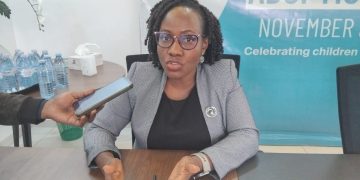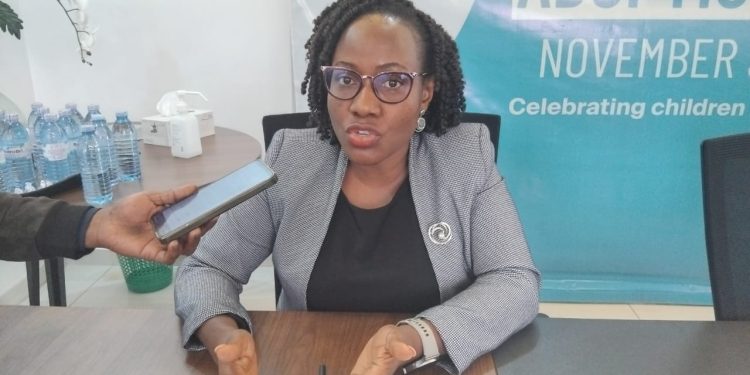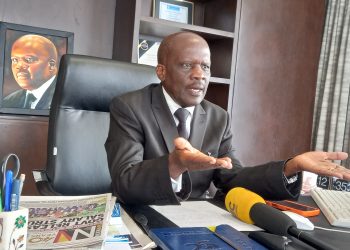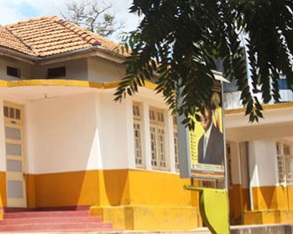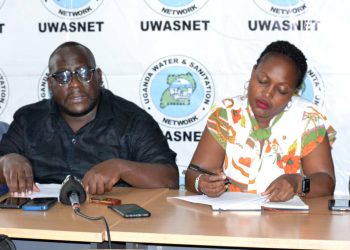Children Caretakers in the country say that approximately 2.5 million children are out of parental care, facing uncertain futures without stable family support.
Alarmingly, only 1% of these children are placed for adoption each year. They say this stark reality highlights the pressing need for increased awareness and understanding of adoption and foster care within our communities.
This statistic underscores that adoption remains a relatively rare event worldwide, reinforcing the necessity for advocacy and education to encourage more families to consider this life-changing option.
These have been raised during the press conference a head of World Adoption Day slated to take place on November 9th 2024 organized by Adoptive parents initiative in partnership with Uganda child rights NGO network and other partners.
“Specifically in Uganda, there are many children living in institutions and statistics said that there are over 50,000 children living in childcare institutions in Uganda. Many of the children that we receive are usually found abandoned by their parents. Some are rescued from pit lanterns. Others are found abandoned in bushes, tax parks on the roadsides and many other places’’ said Barbra Mutagubya, the director of Sanyu babies home who also the co-chairperson of organizing committee of World Adoption Day.
She noted that ‘’as many Ugandan families that come to respond to fostering and adoption usually prefer younger children, younger babies, and mainly girls. And yet, many of the children living in institutions are a little older, other than those living at Sanyu baby’s home, where we have children from half to four years old, there are many institutions with children as old as 18 years and sadly, if the children don’t go into adoptive families at the age of 18, they cannot live in institutions anymore because they are not children’’.
According to her, in such situation, they are compelled to live in independent living. Adding that ‘’this is very challenging, as you can all imagine, in Uganda, sending out an 18 year old child, or 19 year old child to live by themselves. And these are children without any known relative. This is why it is very important for all of us Uganda to come and support the idea of adoption.’’
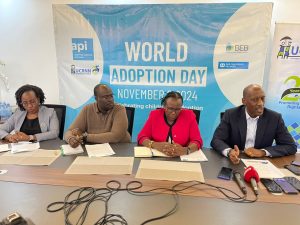
‘’As we approach World Adoption Day on November 9, 2024, we find ourselves at a pivotal moment that calls for our collective attention and action’’. Said Mr. Damon Wamala, the executive director of Uganda child rights NGO network.
This year’s theme, “Celebrating Children in Adoption,” emphasizes the profound impact of adoption on children’s lives and highlights the urgent need for community involvement in creating loving homes for those in need. He noted.
According to the United Nations, an estimated 260,000 children are adopted annually, which translates to fewer than 12 adoptions for every 100,000 persons under age 18.
On his Part, Mr. Andrew Rugasira, an adoptive parents and the founder of Adoptive parent initiative said that they came together, as parents who had adopted children to for the this initiative just to share experiences, because adoption is not also an easy process.
‘’First of all, it begins with a decision, and that decision involves going to adopt a child from home, which begins a legal process. Once you’re completing with that legal process, you obviously first foster the child. Now the law says you foster a child for a year, and the probation officers sign off, then legally, you can get an adoption order through the court.’’ He state.
He added that ‘’there is a long process in bringing the child at home, getting the child to settle in at home, especially like with me, we already had other children when we adopted our son, Jonathan. So how do you integrate the child in the home where there already are the children? So there were interesting experiences. There were issues like disclosure. When do you disclose to the child that the child adopted? There were different experiences. We found that some parents were struggling because they thought if they disclosed that could affect the child’s emotional health and psychology and the rest of it’’.
‘’The difference between adoption and fostering, because when you don’t go through the court process, you’re simply fostering that child, and that child has no any legal rights. Actually that child is left hanging, because once you have adopted the child, the law of Uganda says nobody can claim my child’’. Said Sheila Kawamara Mishambi who is also an adoptive parent
‘’When you’re simply fostering that child is in the balance. They don’t belong to you. They don’t belong anywhere. Some people have taken on these kids and left them with that balance. They have adopted the kids, but they haven’t actually adopted them. They’ve simply left them as if they were in another home where they’ll be thrown out anytime by anybody. So our appeal to the government, is to make sure that the legal process is softened.’’ She said.
Challenges Surrounding Adoption in Uganda:
Adoption in Uganda faces significant challenges, including a complex bureaucracy that complicates the process and leads to excessive legal fees, a preference for younger children that leaves many older children waiting for families, and a general lack of awareness among Ugandans about their rights and the adoption procedures, which deters potential adoptive families.
Therefore, stakeholders in this space, urge the government officials, civil society organizations, private sector partners, communities, and individuals—to collaborate in addressing the challenges surrounding adoption in Uganda by streamlining the process and raising awareness about adoption rights.
Additionally, local communities should create a supportive environment for adoptive families and ensure that the voices and needs of children in care are prioritized in discussions about their futures.
